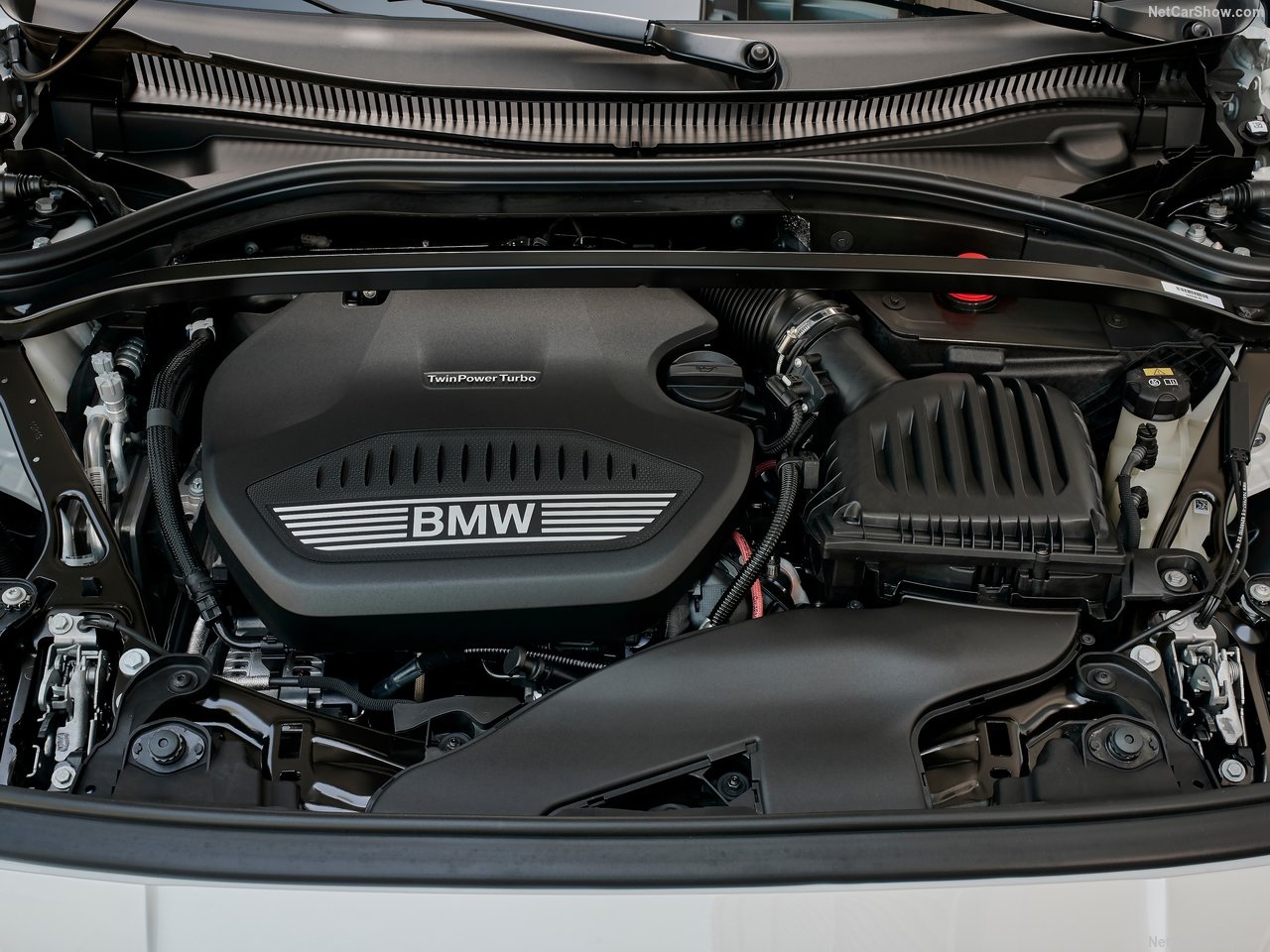Why I Didn’t Just Buy a Used BMW Engine — And How That Saved Me Thousands
When my 2012 BMW 535i’s N55 engine started burning oil and throwing misfire codes, I panicked. My first thought was to grab a cheap used BMW engine from a salvage yard — they were going for under £1,800 with no warranty. But I remembered a friend’s horror story: he installed a used BMW engine from a low-mileage trade-in, only to discover the timing chain was stretched and the turbo was on its way out. Within 3,000 miles, it failed completely. That experience made me pause. I realised a used BMW engine might look good on paper, but without a full inspection history, it’s a gamble. I needed something more reliable — a reconditioned BMW engine or better yet, a remanufactured BMW engine built to factory specs.
So, I started researching the difference between a rebuilt BMW engine and a remanufactured BMW engine. Turns out, “rebuilt” can mean different things — some shops just replace the failed parts, while others do a full teardown. A true remanufactured BMW engine, however, is stripped down to bare castings, inspected with precision tools, and rebuilt using updated components and OEM tolerances. That’s what I wanted. I eventually found a UK-based specialist who offered a replacement BMW engine with a 2-year warranty, full dyno test results, and a certificate of remanufacture. It cost more than a used BMW engine, but after seeing how many people regret cheap swaps, I knew it was the smarter long-term investment.
How I Learned the Real Difference Between a Rebuilt and Remanufactured BMW Engine
Early in my search, I assumed “rebuilt” and “remanufactured” meant the same thing. Big mistake. I almost bought a rebuilt BMW engine advertised as “like new” — until I dug deeper and found out the shop only replaced the head gasket and water pump. No crankshaft inspection, no updated high-pressure fuel pump (HPFP), and no mention of the common N54 oil filter housing crack. That wasn’t a proper fix — it was a band-aid. A true remanufactured BMW engine goes through a far more rigorous process: every component is measured, worn parts are replaced (even if they still “work”), and factory service updates are applied. For BMWs, especially the N54 and N55 engines, this includes upgraded timing chain guides, revised valve stem seals, and enhanced cooling system components.
I spoke to two different engine rebuilders to compare their processes. One offered a rebuilt BMW engine for £2,600, but their checklist was basic. The other charged £3,400 for a remanufactured BMW engine — but provided a full report showing crankshaft straightness, cylinder bore measurements, and even flow tests on the turbo. They also included a new timing chain kit and VANOS solenoids — things I now know are critical on high-mileage BMWs. I went with the second option as my replacement BMW engine, and it’s been flawless for over 18 months. The lesson? Don’t just trust the label. Ask for documentation. A reconditioned BMW engine should come with proof of work, not just promises. And if it’s being sold as a used BMW engine but called “rebuilt,” be very suspicious.
What I Checked Before Trusting a Supplier of a Reconditioned BMW Engine
Not all engine suppliers are equal — and I learned that the hard way. I initially contacted a company advertising a “certified reconditioned BMW engine” with a 12-month warranty. Their website looked professional, but when I asked for dyno test videos or a part (list), they ghosted me. Red flag. I then found a smaller, family-run garage in Staffordshire that specialised in BMW and Mini engines. They didn’t have flashy ads, but they showed me photos of the engine block being machined, shared their remanufacturing checklist, and even let me speak to a previous customer. That level of transparency gave me confidence in their replacement BMW engine offering.
I also cross-checked their process against what I knew about BMW engine weaknesses. For example, the N55 engine is prone to HPFP failure and carbon buildup, so I asked if they replaced the fuel pump and performed intake cleaning. They said yes — and showed me the old parts. They also explained that their remanufactured BMW engine units include upgraded thermostat housings (a known failure point) and new turbo actuators. Even their rebuilt BMW engine option included more than most competitors “reconditioned” versions. I appreciated that they didn’t oversell — they admitted that a used engine might be fine for a short-term fix, but for longevity, a properly remanufactured BMW engine was worth the extra cost. That honesty-built trust. In the end, I chose them for my reconditioned BMW engine, and they delivered exactly what was promised — no surprises.
Why Warranty and Installation Support Matter More Than Price for a Replacement BMW Engine
I’ll admit — I was tempted by a £2,200 reconditioned BMW engine from an online seller. It was £1,000 cheaper than others. But it came with a 3-month warranty and no installation support. That felt risky. Engines aren’t like spark plugs — if something goes wrong during install or in the first few weeks, you’re looking at hundreds in labour costs. I remembered reading forum posts where people installed a cheap rebuilt BMW engine, only to have the oil pump fail because it wasn’t properly primed. No support. No help. I didn’t want to be that guy. So, I invested in a replacement BMW engine with a 24-month warranty and free technical support during installation.
The company I chose didn’t just ship the engine — they included a detailed installation guide tailored to my E60 5 Series, a pre-lubrication checklist, and even a phone number for their tech team. When I had trouble aligning the torque converter during install, I called them. A technician walked me through it — no charge. That alone was worth the price difference. Their remanufactured BMW engine also came with new sensors, mounts, and belts — things others charged extra for. And the warranty? Fully transferable, covering parts and labour if failure was due to manufacturing defect. Compare that to a used BMW engine — often sold “as-is” — and the value is clear. Even a reconditioned BMW engine without solid backing is a risk. In my experience, peace of mind isn’t just nice — it’s essential when dealing with complex German engineering.
How Engine History and Mileage Misled Me — And What I Do Differently Now
I almost made a huge mistake by focusing too much on mileage. I found a used BMW engine with only 38,000 miles — supposedly pulled from a low-use executive car. It looked perfect. But when I asked for the full vehicle history, the seller couldn’t provide it. No service records, no oil change stamps, no proof of storage conditions. I later learned from a mechanic that low mileage doesn’t mean gentle use — short trips, infrequent oil changes, and cold starts can do more damage than highway miles. That engine could’ve been abused in ways the odometer wouldn’t show. I backed out and decided to go with a remanufactured BMW engine instead — where every component is known and documented.
Now, I don’t care about the original mileage of a used BMW engine unless there’s full paperwork. Instead, I focus on the rebuild quality. A rebuilt BMW engine with 100,000 original miles but a full top-to-bottom refresh is safer than a low-mileage unknown. I also learned to ask about the engine’s origin. Was it from a smoking-hot climate? Flood-prone area? Driven hard? These affect internals like bearings and gaskets. The reconditioned BMW engine I eventually bought came from a donor car with full BMW service history — and the rebuilder shared that report with me. They even noted that the oil analysis from the last service showed clean results. That kind of detail gave me confidence. Whether you’re getting a replacement BMW engine or a remanufactured BMW engine, always demand history — not just specs.
The Performance and Longevity Results After Installing My Remanufactured BMW Engine
Eighteen months and 23,000 miles later, my remanufactured BMW engine is running stronger than the original. No oil consumption, no warning lights, and the throttle response is crisp — just like when the car was new. I had the ECU fully reset and coded to match the new engine, and I’ve done regular oil analysis every 6,000 miles. Results? Clean metal particles, stable viscosity — signs of healthy internals. This wasn’t luck. It was the result of choosing a proper remanufactured BMW engine over a cheap used BMW engine or half-hearted rebuilt BMW engine. I also appreciate that the company used updated parts — like the revised N55 timing chain kit — which have eliminated the ticking noise common in older units.
Before the swap, I was spending £300 a year just on oil top-ups and diagnostics. Now, maintenance is back to normal — air filter, oil changes, spark plugs. The replacement BMW engine paid for itself in saved repairs and stress. And when I recently took it on a 500-mile road trip, it held 70mph on the motorway with zero strain. That’s reliability. Would a reconditioned BMW engine from a less reputable source have lasted this long? Maybe — but I doubt it. My advice? Don’t treat an engine like a commodity. Whether you go for a reconditioned BMW engine, rebuilt BMW engine, or replacement BMW engine, do your homework. Talk to experts, demand proof, and prioritise quality over price. Because in the end, your car’s heart deserves more than a gamble.




